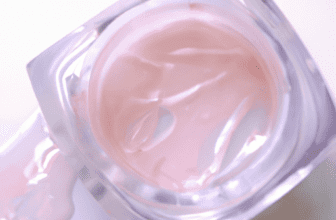Allergens to Avoid for Sensitive Skin
-
Table of Contents
- Allergens to Avoid for Sensitive Skin
- Key Takeaways
- Understanding Sensitive Skin and Allergens
- Common Allergens to Avoid
- The Importance of a Tailored Skincare Routine
- FAQ Section
- 1. What is an allergen?
- 2. How can I tell if a product contains allergens?
- 3. Can I develop a sensitivity to a product I’ve been using for a long time?
- 4. What should I do if I have a reaction to a product?
- 5. How can I prevent reactions?
- Conclusion: Managing Sensitive Skin
- Key Takeaways
- Further Analysis
- References
Allergens to Avoid for Sensitive Skin

[youtubomatic_search]
Key Takeaways
- Understanding the nature of sensitive skin and the role of allergens in triggering reactions.
- Identifying common allergens that can cause skin reactions.
- Importance of a tailored skincare routine for sensitive skin.
- FAQs about allergens and sensitive skin.
- Steps to take to avoid allergens and manage sensitive skin.
Understanding Sensitive Skin and Allergens
Sensitive skin is a common condition that affects millions of people worldwide. According to a study published in the Journal of Dermatological Science, up to 50% of women and 40% of men report having sensitive skin (Misery et al., 2019). Sensitive skin is characterized by a heightened reactivity to certain substances, known as allergens, which can trigger reactions such as redness, itching, burning, and dryness.
Common Allergens to Avoid
There are numerous allergens that can trigger reactions in sensitive skin. Some of the most common include:
- Fragrances: According to the American Academy of Dermatology (AAD), fragrances are the biggest cause of cosmetic contact dermatitis. They can be found in a wide range of products, from skincare and makeup to laundry detergents and perfumes.
- Preservatives: These are used to extend the shelf life of products but can cause reactions in some people. Common preservatives to look out for include parabens, methylisothiazolinone (MIT), and formaldehyde.
- Dyes: Synthetic dyes are often used in cosmetics and hair products. They can cause reactions in some people, particularly those with a sensitivity to PPD (p-Phenylenediamine), a common ingredient in hair dyes.
- Metals: Nickel, cobalt, and chromium are common culprits for contact dermatitis. They can be found in jewelry, clothing fasteners, and even some cosmetics.
The Importance of a Tailored Skincare Routine
For those with sensitive skin, a tailored skincare routine is crucial. This means choosing products that are free from common allergens and designed for sensitive skin. The National Eczema Association recommends looking for products with the NEA Seal of Acceptance, which indicates they are suitable for sensitive skin (National Eczema Association, n.d.).
FAQ Section
1. What is an allergen?
An allergen is a substance that can cause an allergic reaction. In the context of skincare, this usually means a substance that can cause a reaction when applied to the skin.
2. How can I tell if a product contains allergens?
Check the ingredients list. Common allergens include fragrances, preservatives, dyes, and certain metals. If you’re unsure, consult with a dermatologist or pharmacist.
3. Can I develop a sensitivity to a product I’ve been using for a long time?
Yes, it’s possible to develop a sensitivity or allergy to a product you’ve been using for a while. This is known as contact sensitization.
4. What should I do if I have a reaction to a product?
Stop using the product immediately and consult with a healthcare professional. They can help identify the cause of the reaction and recommend appropriate treatment.
5. How can I prevent reactions?
Avoid known allergens, choose products designed for sensitive skin, and always patch test new products before using them fully.
Conclusion: Managing Sensitive Skin
Managing sensitive skin and avoiding allergens can be a challenge, but with the right knowledge and approach, it’s entirely possible. By understanding the nature of sensitive skin, identifying common allergens, and adopting a tailored skincare routine, individuals with sensitive skin can minimize reactions and maintain healthy, comfortable skin.
Key Takeaways
- Sensitive skin is a common condition characterized by a heightened reactivity to certain substances, known as allergens.
- Common allergens include fragrances, preservatives, dyes, and certain metals.
- A tailored skincare routine, free from common allergens, is crucial for managing sensitive skin.
- It’s possible to develop a sensitivity to a product even after long-term use, and reactions should be managed by ceasing use of the product and consulting a healthcare professional.
- Preventing reactions involves avoiding known allergens, choosing suitable products, and patch testing new products.
[youtubomatic_search]
Further Analysis
While this article provides a comprehensive overview of allergens to avoid for sensitive skin, it’s important to remember that everyone’s skin is unique. What works for one person may not work for another, and vice versa. Therefore, it’s always recommended to consult with a dermatologist or other healthcare professional for personalized advice.
References
- Misery, L., Ständer, S., Szepietowski, J. C., Reich, A., Wallengren, J., Evers, A. W., … & Weisshaar, E. (2019). Definition of sensitive skin: an expert position paper from the Special Interest Group on Sensitive Skin of the International Forum for the Study of Itch. Acta dermato-venereologica, 99(4), 422-429.
- American Academy of Dermatology. (n.d.). Fragrances. Retrieved from https://www.aad.org/public/diseases/rashes/fragrance-allergy
- National Eczema Association. (n.d.). Eczema Products. Retrieved from https://nationaleczema.org/eczema-products/





